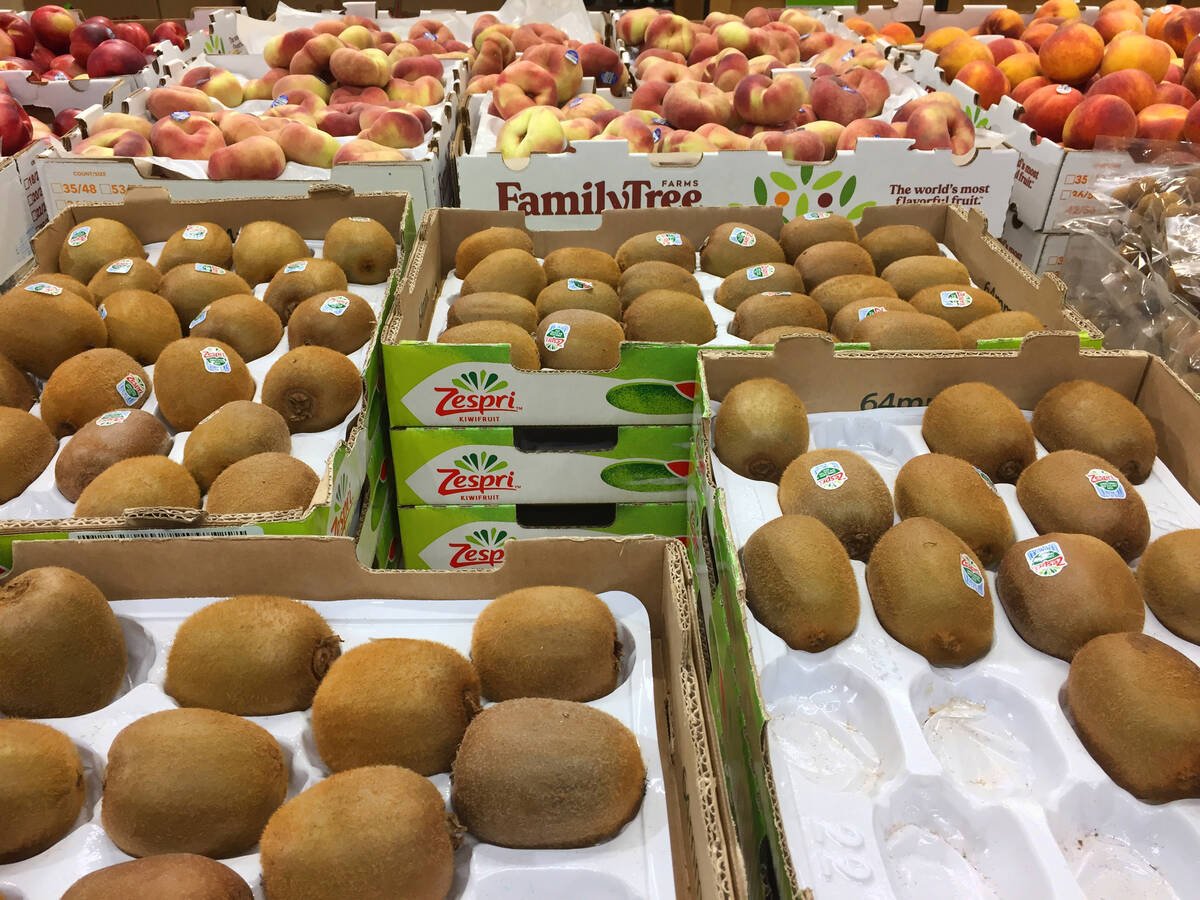SASKATOON — Exporters of agricultural products in the United States are anxious about repercussions from simmering trade wars ignited by their president.
Alexis Taylor, chief global policy officer with the International Fresh Produce Association, said it has created an environment of uncertainty and animosity that is bad for business.
Follow all our coverage of the tariffs situation here
Read Also

Input inflation shows need for more Canadian fertilizer
With grain prices much lower than in recent years and inputs high and in cases rising further, it will be difficult to fund farm operating costs this year, let alone fixed costs.
She mentioned during the Agri-Pulse Ag & Food Policy Summit that the “Buy Canadian” campaign appears to have some teeth, noting that Canadians are angry and intent on not buying U.S. fruit and vegetables.
“We are hearing that from our members who have had long-term relationships selling into Canada,” said Taylor.
Canada and Mexico are the top two markets for U.S. fresh fruit and vegetables, so any trade disruption in those markets has serious consequences.
Taylor’s members felt the sting of the trade war when U.S. President Donald Trump briefly implemented 25 per cent duties on Canadian and Mexican goods from March 4-6.
“We saw decreased volumes on those three days from our members,” said Taylor.
Sales have returned to normal levels after the short-lived disruption and her members want to keep it that way.
Michael Dykes, president of the International Dairy Foods Association, is pushing for an extension of the Canada-U.S.-Mexico Agreement (CUSMA) and other trade deals.
The U.S. dairy sector is highly export dependent with US$8.2 billion in sales to 145 countries in 2024.
“We need exports and our exports are growing,” he said.
His members lost customers during Trump’s first term, and they haven’t all returned.
“Reliability is extremely important to our customers,” said Dykes.
Mexico is the top market for the U.S. dairy sector, followed by Canada and China. All three countries are currently embroiled in trade wars with the U.S.
The companies he represents are dealing with a high degree of market uncertainty in today’s topsy-turvy trade climate.
“Members are calling, wanting to know what this means, what that means,” he said.
“I usually tell them, ‘I don’t know. Hang on for an hour or two and it will almost (certainly) change.’ ”
The U.S. dairy sector has slated $8 billion for capital expansion but now companies are wondering whether to proceed with their infrastructure plans.
“We are in some fast-moving, ever-changing times here,” he said.
Jim Sutter, chief executive officer of the U.S. Soybean Export Council, said his member companies are particularly concerned about rising trade tensions with China.
“It’s too big a market for us to just say goodbye to it overnight,” he said.
His sense is that China is less interested in a trade war than they were the last time around in 2018.
But they are probably better able to survive one due to their supply diversification efforts with markets such as Brazil.
Sutter has heard Chinese president Xi Jinping mention in the past how agriculture is the “ballast” in a stormy trade relationship with the U.S.
Sutter is hopeful the two countries can resurrect the Phase One trade agreement in which China agreed to expand the purchases of certain U.S. goods by $200 billion for a two-year period ending Dec. 31, 2021.
The deal included an extra $73.9 billion of agricultural goods. Actual purchases fell short of that goal, with an additional $61.1 billion bought, according to the Peterson Institute for International Economics.
Everett Eissenstat, partner with Squire Patton Boggs, an international law firm, believes Trump wants a new trade deal with China.
“We need the market and they need the food,” he said.
Taylor said her members are still licking their wounds from the 2018-19 trade war with China.
Sales of fresh fruit and vegetables to that market averaged $450 million per year between 2015 and 2017. That number fell to $236 million in the 2020 to 2024 period.
“When you lose some of these markets, it’s very hard to get them back,” she said.
That is precisely why her members are concerned about Trump’s looming 25 per cent tariffs on Mexican and Canadian goods set to take effect on April 2, which would trigger retaliatory tariffs from those two top markets.
“That’s really concerning,” said Taylor.
Sutter said U.S. agricultural exporters are also grappling with a proposal from the U.S. Trade Representative to slap a $1 to $1.5 million levy on Chinese made or flagged ships entering U.S. ports.
The proposal is designed to support the U.S. shipbuilding sector, but he thinks it would have disastrous consequences for exporters of agricultural and other products.
Simple math shows that a $1 million levy on a ship carrying two million bushels of grain would cost U.S. growers 50 cents per bu.
“It would very significantly hurt the competitiveness of U.S. agricultural products,” said Sutter.
Dykes is pleased Trump has been complaining about the way Canada treats imports of U.S. dairy products, but he wants to make sure Canada is clear on what the two issues are.
The U.S. is concerned about how Canada administers its tariff rate quota, which has been averaging a 27 per cent fill rate.
It also has a problem with how class 4(a) milk is priced.
“They’re pricing raw milk prices for protein-rich products at below the cost of production,” he said.
















